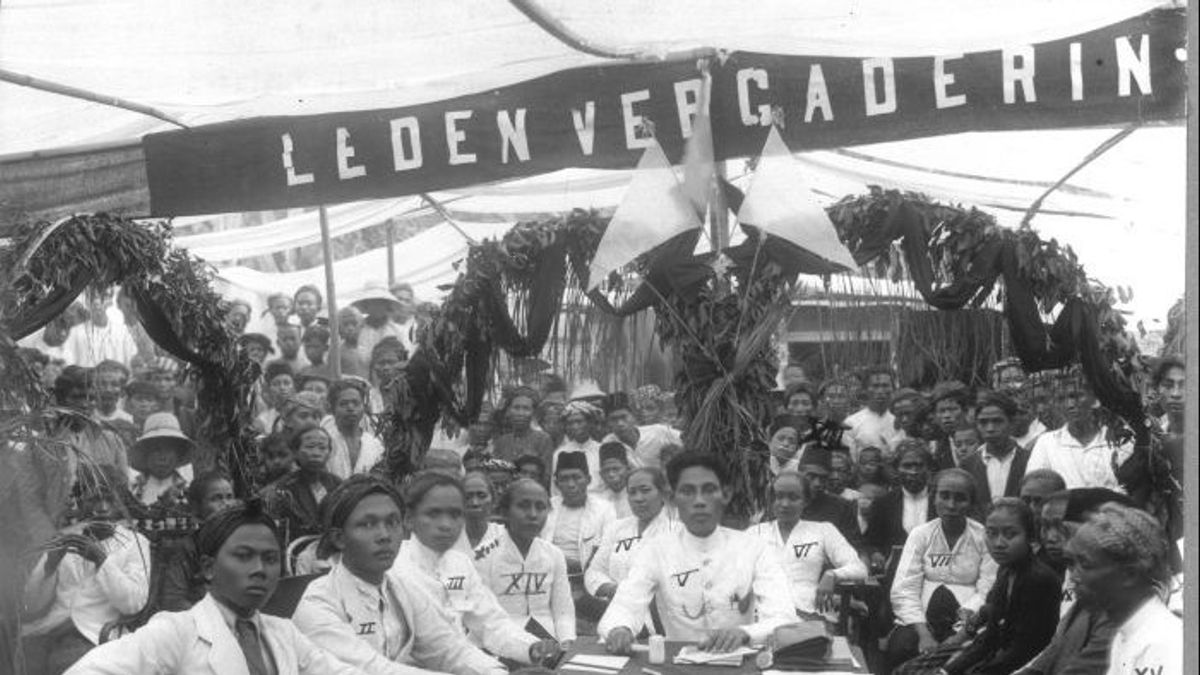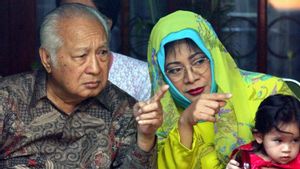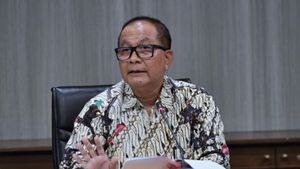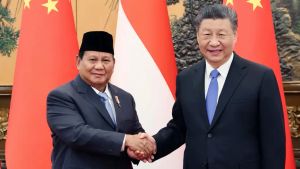JAKARTA - Today, October 16, more than a century ago or in 1905, the Sarekat Dagang Islam which later became the Sarekat Islam (SI) was established. SI was originally formed to fight trade competition with China. His role expanded after being led by HOS Cokroaminoto. SI became one of the first men's earth movements to raise national awareness to fight against Dutch colonialism.
SI was first founded by a wealthy Muslim merchant from Surakarta, Haji Samanhudi. Since its inception, citing its official website , SI has had three main principles. The first is based on the principles of Islam, the second is populist, and the third is economic.
The background of economic principles became one of the priorities because at that time the Dutch provided trade facilities and monopolies to the Chinese. They have the position of second class citizens or what is known as Vreemde Oorterlingen (foreign eastern class).
"The facilities and monopoly received by the Chinese people were not obtained by the Bumiputra traders. As a result, the male land entrepreneurs were unable to compete with Chinese entrepreneurs," he wrote.
Seeing this reality, Samanhudi and Cokroaminoto were moved to face the monopoly of Chinese traders. They feel that all national potential, especially Muslims, must be mobilized to defend the rights and dignity of the Indonesian people.
In 1912 there was a debate between Haji Samanhudi and Tjokroaminoto regarding SI's next steps. But after that Samanhudi, who was more preoccupied with trading activities, then handed over the reins of leadership to Cokroaminoto.
Since then the scope of SI has expanded. Cokroaminoto sees the scope of this organization as too narrow. Therefore he was determined to embrace all the Bumiputra of the Dutch East Indies with the aim of opposing the practice of Dutch colonialism, which was based on the spirit of Pan-Islamism.
Widespread
Since the Sarekat Islam was legalized by a notary, this organization has continued to grow rapidly. Sarekat Islam has collaborated with Muhammadiyah since 1913. The two organizations operate in different directions. Muhammadiyah runs in the socio-religious area while SI struggles through political channels.
In 1919, SI claimed to have garnered two million members. According to Jakarta State University History Lecturer, Yasmin, in his writing Sarikat Islam in the Indonesian National Movement explained that Sarekat Islam, which did not appear to be elite, was a factor in why it was so easily accepted by the community.
In the first Sarekat Islam congress held in January 1913 in Surabaya, Sarekat Islam was declared not a political party. In addition, it was also decided that the Sarekat Islam would be open to the Indonesian people during the congress in Solo. Even the Sarekat Islam imposed restrictions on the entry of civil servants as members.
The establishment of the Sarekat Islam also had long and short term goals. The short term is to foster cooperation among fellow members, please help, create harmony between fellow Muslims, create lawful businesses that are not against government regulations, create a prosperous and prosperous life for the people for the greatness of the country.
While in the long term, Islamization is increasingly steadfast for the Indonesian people. To achieve this goal, Indonesian independence is something that is absolute. "It is inevitable that we, the Muslims, must have freedom of the people or freedom of the nation (national virjheid) and must rule over our own virgin land," said Cokroaminoto.
The rapid development of SI had made the Dutch nervous. Its members did not escape the supervision of the colonial government. This organization was also banned and frozen by the Resident of Surakarta.
Finally, on August 26, 1912, the suspension was lifted, with the condition that it must change the Articles of Association. SI continues to stand until today.
The English, Chinese, Japanese, Arabic, and French versions are automatically generated by the AI. So there may still be inaccuracies in translating, please always see Indonesian as our main language. (system supported by DigitalSiber.id)









